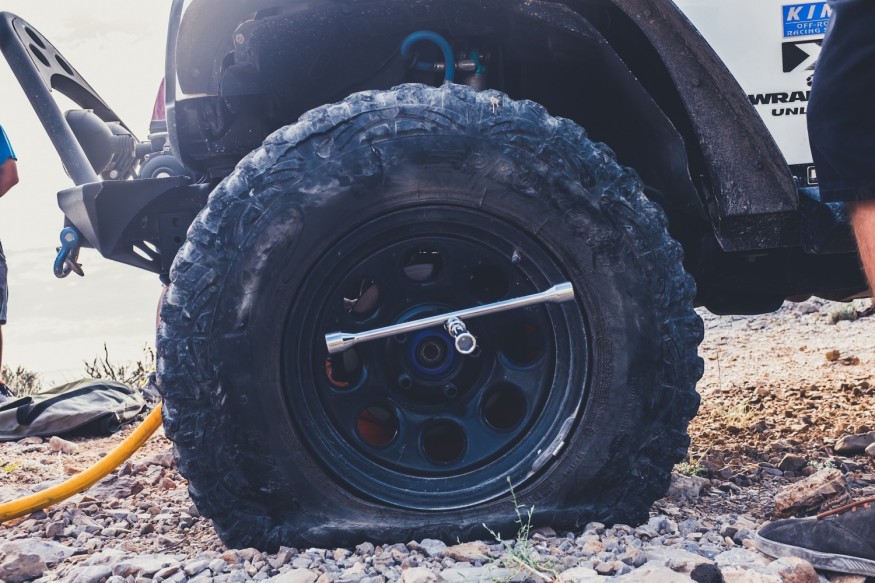Essential Tools to Keep in Your Car for Emergencies

Every driver knows the open road carries with it a sense of freedom, but it also bears the unpredictable—from severe weather to the unforeseen flat tire. While we hope that emergencies never strike, the wise are always prepared. Ensuring your car is equipped with the right tools can mean the difference between a minor inconvenience and a major ordeal. Whether you're commuting to work or heading out on a road trip, the contents of your trunk should include more than just a spare tire and a jack. In this guide, we'll walk through the essential tools and items you should have in your car to tackle emergencies with confidence.
Fully Stocked First Aid Kit
Before we dive into the mechanics, let's start with safety. A first aid kit is an absolute non-negotiable when it comes to emergency tools in your car. In the event of an accident, a comprehensive kit can provide the necessary resources to treat minor injuries until professional help arrives. Your kit should include basics like bandages, gauze, adhesive tape, scissors, antiseptic wipes, and a range of over-the-counter medications for pain relief and allergies. Remember to check and replenish your first aid supplies regularly—expired or used products won't be of much help in an emergency.
Roadside Assistance Gear for Visibility and Protection
Imagine you're on a dimly lit road, and your car decides to hiccup to a halt. In such situations, making yourself visible to other drivers is essential for safety. This is where your roadside assistance gear comes in handy. Equip your vehicle with reflective warning triangles or flares to alert oncoming traffic. High-visibility vests are also crucial, especially if you need to exit your car on a busy road.
Additionally, don't overlook the importance of a reliable flashlight with extra batteries or a hand-cranked version to ensure visibility in the dark. Complement this with a sturdy, weather-resistant poncho or an extra jacket to keep you protected from the elements while you attend to your vehicle.
Car Battery Chargers
Your car's battery is the silent powerhouse that seldom asks for attention until it's too late. A dead battery can be more than an inconvenience; it can leave you stranded in the most inopportune places. To combat this, portable car battery chargers are an indispensable tool for any driver. Today's chargers are compact and powerful and often include features like USB ports to charge your devices, as well as emergency lights.
When selecting a car battery charger, opt for one with an air compressor to handle underinflated tires, and ensure it has the right amperage to suit your vehicle's needs. A good charger should also have safety features like overcharge protection and easy-to-use clamps. With this gadget, you won't have to flag down another vehicle for a jump-start; you can get your car running again quickly and safely on your own.
Multipurpose Utility Tool
A multipurpose utility tool is like having a mini toolbox at your fingertips. Whether it's a pair of pliers to twist a loose wire back into place, a knife to cut through a jammed seatbelt, or a screwdriver to tighten a loose screw, this compact wonder covers a wide array of functions without taking up much space. The key is to choose a sturdy, well-made tool that won't fail you when you need it most. Look for one that feels solid in the hand and unfolds smoothly, indicating good construction and durability. With this in your glove box, you'll be well-equipped for quick fixes on the go.
Emergency Food and Water Supplies
We often think about mechanical tools and safety equipment for car emergencies, but we should not forget about personal sustenance. Having a stash of non-perishable snacks like energy bars, nuts, or dried fruits can be a lifesaver, especially if you're stranded for an extended period. Alongside the snacks, pack at least a gallon of water to keep you hydrated while you wait for help. These items should be cycled out occasionally to ensure they're fresh when you need them. Being prepared with food and water is particularly crucial in remote areas where assistance might take longer to arrive.
Navigation Aids
In today's tech-driven world, we've grown accustomed to relying on our smartphones and in-car GPS for directions. However, technology can fail, batteries die, and signal loss can leave you more lost than you were originally. That's why keeping a physical map and a compass in your car is a smart backup plan, especially when you travel to new places. Learning the basics of reading these traditional navigation tools can save you from a tight spot if your electronic aids are out of commission.
Subscribe to Latin Post!
Sign up for our free newsletter for the Latest coverage!

















